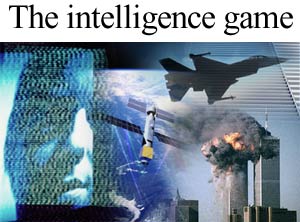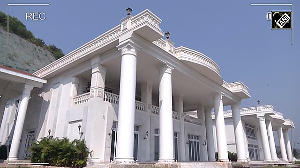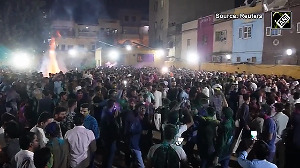
Intelligence cooperation and sharing was not a fallout of 9/11. It came into being much earlier. For example, cooperation between the intelligence agencies of the Allied powers contributed immensely to their victory in World War II.
After the war, international communism and externally-supported Communist insurgencies came to be perceived as both subversive and a threat to national security by many countries. The intelligence agencies of the Western countries and the so-called non-aligned world joined hands to meet this threat. The United Kingdom took the lead in this direction and persuaded the other members of the Commonwealth to constitute, under its leadership, a Security Liaison Network that would strengthen their counter-subversion capability. After Independence, India, under then prime minister Jawaharlal Nehru, joined the SLN without any reservation.
The SLN members shared intelligence, insights, assessments and expertise. This was done through the Security Liaison Officers posted in each country's diplomatic mission undercover as diplomats. The SLOs were drafted from intelligence agencies or the police.
America's Central Intelligence Agency set up a similar intelligence and security network with many countries in Asia. While those set up under the auspices of military organisations such as the South-East Asia Treaty Organisation and the Central Treaty Organisation operated multilaterally like the Commonwealth's SLN, others -- such as the CIA's cooperative mechanism with the Indian intelligence unit created in the early 1950s -- functioned bilaterally.
India perceived the USSR and other Communist states in East Europe as its valued friends, but viewed the international Communism promoted by them as a likely threat to its democracy and national security. Its leadership of the non-aligned world did not come in the way of its furtively aligning with the US-UK intelligence agencies in countering this threat. Overt non-alignment between the East (Europe) and the West at the State level and covert alignment with the West at the intelligence level became its policy.
As India's border tension with China grew in the 1950s, this intelligence cooperation with the West, particularly with the US and the UK, was expanded to cover political and military developments in China. India's request for similar cooperation over Pakistan, however, was firmly rebuffed. The West made it clear to India that any intelligence collection expertise or technical intelligence equipment transferred to them should only be used for covering China. Whenever they suspected India of diverting the equipment to cover Pakistan, they threatened to call off the cooperation.
India managed to build an effective network by turning to the intelligence agencies of the erstwhile USSR and other East European countries for intelligence-sharing on Pakistan.
International terrorism emerged as a major threat to the security and stability of many countries after the 1967 Arab-Israel war. As a result, the intelligence cooperation network expanded to include counter-terrorism. After the post-1989 collapse of the USSR and the other Communist states of East Europe, and after Deng Xiaopeng-led China gave up its policy of exporting revolution, cooperation in counter-subversion withered away.
Before 9/11, intelligence cooperation in counter-terrorism was not as satisfactory as the earlier cooperation in counter-subversion. Intelligence agencies of different countries had no difficulty in agreeing on what constituted communist subversion, but a similar convergence on what constituted terrorism eluded them. Subjective and political factors came in the way of effective cooperation.
The US intelligence agencies, for example, helped Pakistan's Inter-Services Intelligence instigate Sikh terrorism in Punjab to teach India a lesson for breaking up Pakistan in 1971. Yet, they were reluctant to cooperate with India in dealing with the Sikh terrorists till the latter blew up the Air India aircraft, Kanishka, off the Irish coast in June 1985. Those killed included a large number of Canadian and other Western nationals, many of them of Indian origin. It was only after this tragedy that the Western intelligence agencies started shedding their reticence in cooperating with India on counter-terrorism.
After Pakistan-sponsored terrorism spread from Punjab to Jammu and Kashmir in 1989, all Western agencies without exception again declined to cooperate with India on this issue. They refused to acknowledge it as terrorism and declined to include it in the periodic bilateral talks on terrorism between intelligence officers. This attitude started changing only after the kidnapping of some Israeli tourists by the Jammu and Kashmir Liberation Front in Kashmir in 1992. But it was the kidnapping of some Western tourists, including Americans, by the Harkat-ul-Ansar under the name Al Faran in 1995 in Kashmir that saw Western agencies finally concede that what India was facing in Kashmir was terrorism. They were still reluctant, however, to acknowledge Pakistan's hand in it.
It was the Mumbai bomb blasts in March 1993, in which over 200 civilians were killed, that first provided Indian intelligence with a smoking gun against Pakistan in the form of an unexploded explosive device with a detonator and a timer of US origin. The FBI admitted these were part of the stock given by the CIA to Pakistan's ISI in the 1980s for use against Soviet troops in Afghanistan. Despite this, they gave the benefit of doubt to the ISI by arguing that the terrorists might have bought them in the smugglers' market, where many weapons stolen from the Pakistan government stock were available.
It was the 9/11 terrorist attack on the US that forced intelligence agencies worldwide to accept the fact that terrorists were benefiting from the half-hearted cooperation between the agencies. Cooperation in counter-terrorism has improved considerably since, but the US still calls the shots. It wants the agencies of other countries to share with it whatever it asks for, but gives them in return only what it thinks they should know. It shares with India only intelligence that will help it deal with terrorists, but not intelligence that might help India strengthen its case against Pakistan as a State-sponsor of terrorism. The anxiety to protect Pakistan from any punitive action by India still strongly influences US policy.
Despite this, the need for intelligence cooperation with the US is now accepted by all segments of political and public opinion in India. This was evident last year when the FBI director and the CIA's deputy director openly visited India and met senior ministers and officials. Even the Communists did not make any noise. Before 9/11, FBI and CIA chiefs used to visit India furtively lest their visit create a political controversy.
Pakistan's effort in this direction has led to street demonstrations by religious parties. This is because India has restricted its cooperation to intelligence sharing only, but the Pervez Musharraf government has been compelled to allow US intelligence to function in an operational role as well. Distrustful of the ISI's sincerity in acting on intelligence collected by them, American intelligence officers have allegedly been accompanying ISI and police officers during their raids.
Intelligence agencies cooperate more readily to counter threats from non-State actors than from State actors. There is cooperation in monitoring other States only if they are viewed as common adversaries. India's reluctance to share intelligence with the US and other Western countries on the USSR and its allies in East Europe and their refusal, in turn, to share intelligence with India on Pakistan are good examples.
Besides, they do not hesitate to withhold intelligence against commonly perceived adversaries as well, if they consider it to be in their national interest. The US, for example, did not alert India to the Chinese troop build-up in Tibet and Yunnan before the 1962 Sino-India war. Washington DC had calculated that an Indian defeat would make New Delhi more amenable to US influence.
Besides, there is always a greater readiness to share sanitised technical intelligence than human intelligence for fear of exposing the sources concerned. When there is pressure to share human intelligence, agencies do not hesitate to cheat by passing off plagiarised reports from open sources as intelligence from high-grade human sources. Take the recent controversy over the inclusion of a plagiarised report from a US journal in a British White Paper on Iraq. MI-6, the British external intelligence agency, may not have deliberately done this. One should not be surprised if another agency fobbed off this plagiarised report to MI-6 as intelligence from a high-grade human source. These are games that agencies always play with and against each other.
Sincerity in intelligence sharing, whether vis-a-vis State or non-State actors, is never total. Deliberate misleading and cheating are part of the game. Intelligence agencies are not charitable organisations. For every piece of intelligence shared, they expect a quid pro quo, which could be a piece of intelligence or political support or other gestures. The US, which is the sole superpower now, dictates the rules of the game. One should not be surprised if it withholds vital intelligence from States which protest its Iraq policy.
Greater intelligence sharing since 9/11 has contributed to some spectacular results in the war against terrorism, but one should not be complacent thinking that the tap will continue to remain open. Nations will regulate intelligence-sharing depending on their national interests. No other nation does this more ruthlessly than the US.
While intelligence-sharing is welcome, one should not develop an unhealthy dependence on it. Intelligence from others is a bonus, but one's ability to deal with threats to one's national security depends on one's capability to collect all the intelligence required without depending on others. There is no substitute to developing effective national intelligence capability.
Design: Dominic Xavier






 © 2025
© 2025